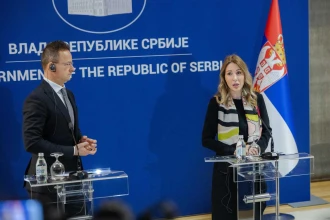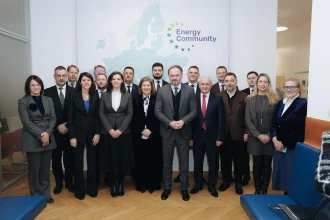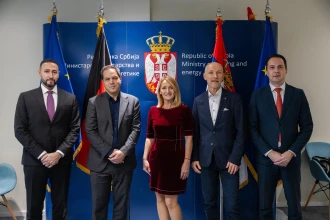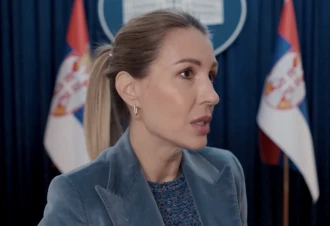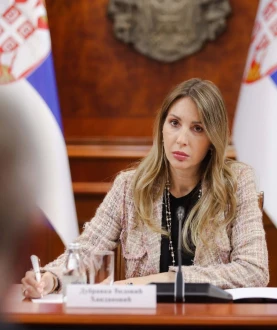At the Informal Ministerial Council Meeting of the Energy Community that is being held today in Albania, Minister of Mining and Energy, Dubravka Djedović, said that in order to enable a potential introduction of the regional system of carbon emissions trading, modeled after the system that is in place in the EU (EU ETS), additional comparative analyses, as well as sufficient financial support are required before a mechanism that would be applicable in the countries of the region could be selected.
Đedović participated in the informal Ministerial meeting of the Energy Community in Albania
"In order to create the conditions for the launching of further activities related to the taxation of CO2 emissions, at first it is necessary to analyse all existing mechanisms in order to be able to select the ones that will enable the harmonization of the region with the energy and climate policies of the EU in a way that would be economically sustainable and socially just. Serbia’s position, as I have pointed out once again at today's meeting, is that before taking any further steps, a comprehensive, detailed and comparative analysis regarding the implementation of the regional system for emissions trading or some other mechanism would be needed, primarily related to the generation of electricity, before we could start discussing specific obligations and deadlines for the implementation of activities," said Djedović, who participated in the Informal Ministerial Council Meeting of the Energy Community in the town of Tepelenë in Albania.
"The consequences of potential decisions regarding the implementation of the CBAM regulation and the carbon pricing are severe and far-reaching for the economy and social relations, and it is necessary to conduct suitable analyses at the national level, on the basis of which the Government could take a political stand," said Djedović.
She pointed out that, regardless of the carbon pricing model, significant EU assistance and a special just transition mechanism that will mobilize additional funds in addition to the existing support funds are needed.
"Given the level of GDP per capita and the share of coal in electricity generation in Serbia and in the region, taking a stand on the calculation of carbon emission prices as part of the process of decarbonisation of the energy sector is not possible without ensuring sufficient financial support, whereby the support provided by the EU is crucial. The Contracting Parties of the Energy Community, including Serbia, are in the early stage of a just energy transition process, however we already need to estimate future costs, and thus the appropriate sources of funds for the decarbonisation process, as it is the case in the EU, where under the Just Transition Mechanism the amount of 100 billion euros is provided to support member states," explained Djedović.
She added that she sees the establishing of a Just Transition Fund for the Western Balkans as one of the possible solutions, which would also be supported by the EU. "Such a fund should provide funds to support economic diversification, retraining of employees, investments in small and medium-sized enterprises, opening of new enterprises, research and innovation, environmental rehabilitation of coal regions, generation of clean energy, transformation towards technologies with lower emissions of harmful gases. "In order to ensure sustainability and predictability, these funds should be combined with existing sources of funds provided by the EU and international financial institutions," said the Minister.
She also added that the EU representatives welcomed the measures that Serbia adopted in the previous months with the aim of accelerating the development of the energy sector, including the already started reforms of public enterprises, the adoption of the Law on Amendments to the Law on the Use of RES, the announcement of the first auctions for the allocation of market premiums for new 450 MW from RES, as well as the development of a three-year auction plan for RES. Progress in establishing a strategic framework for the development of the energy sector and the implementation of the energy transition was also highlighted: the Integrated National Energy and Climate Plan is being developed, for which public consultations have begun and it will soon be included in the public debate, while priority projects in the energy sector have been defined under the Baseline Energy Infrastructure and Energy Efficiency Measures Development Plan for the period up to 2028 with projections up to 2030, which was recently adopted by the Government of Serbia.
On the sidelines of the Ministerial Council Meeting, Djedović had a bilateral meeting with the Minister of Infrastructure and Energy of Albania, Belinda Balluku, on energy cooperation between the two countries, where the main topics were the measures taken by the two countries to increase the security of supply and promote cooperation within wider regional initiatives.


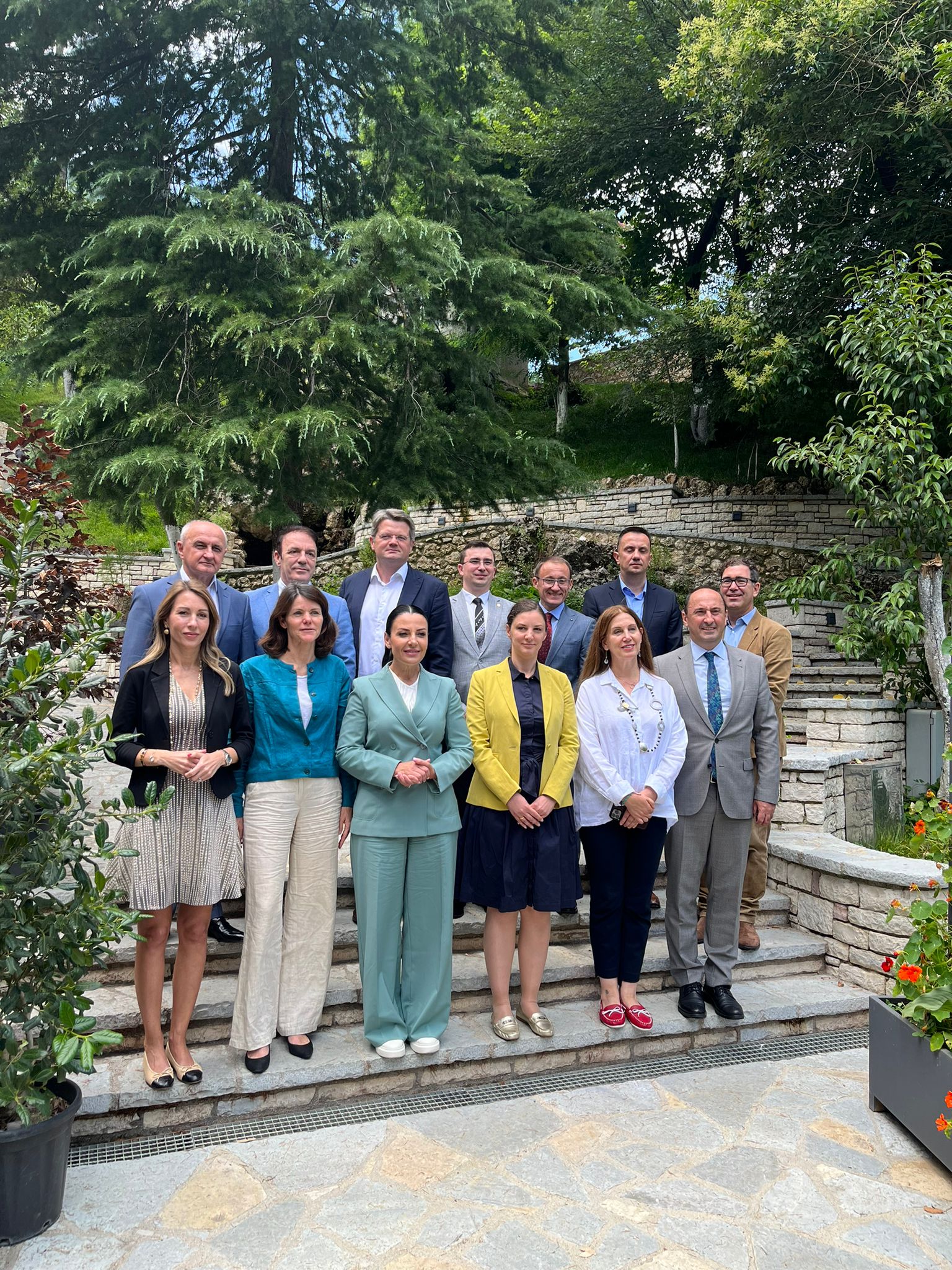
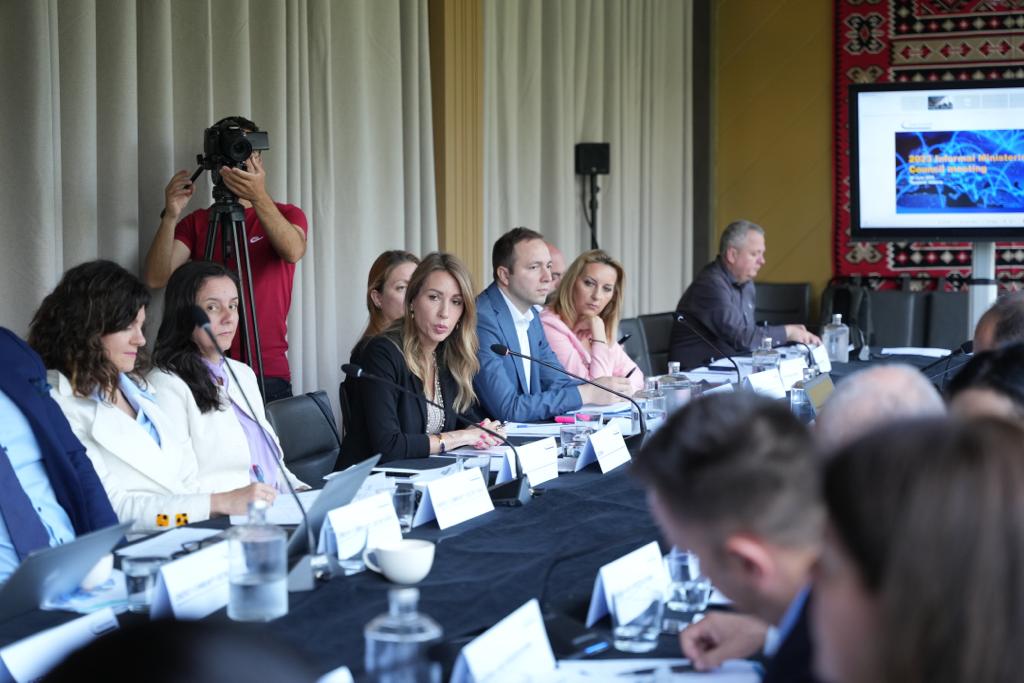
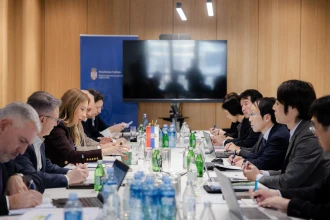
.webp)
